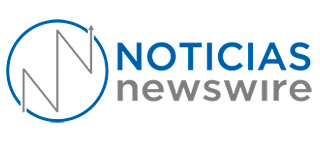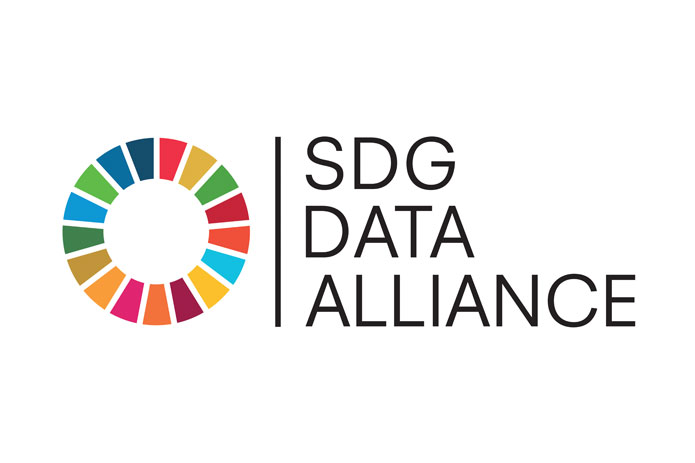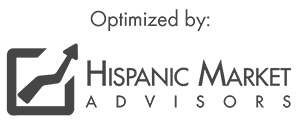NEW YORK, NY – July 13, 2021 – (NOTICIAS NEWSWIRE) – A long-term universal threat to social and economic development, inequity hampers poverty reduction initiatives, destroys people’s sense of fulfillment and self-worth, and stunts every human’s potential. In September 2015, world leaders agreed to 17 Sustainable Development Goals (SDGs) that have the power to create a better, more equitable world by 2030. Reducing inequality is the most important step countries can take to improve standards of living.
Based on the foundational principle of reducing inequalities of all kinds, the W.K. Kellogg Foundation, Esri, the PVBLIC Foundation, and the United Nations Statistics Division (UNSD) Global Geospatial Information Management (UN-GGIM) Secretariat, announced today they have joined forces to form the SDG Data Alliance.
Using the power of purpose-driven collaboration, globally recognized geospatial frameworks, and leading GIS technology, this influential group of partners will accelerate achievement of the SDGs by creating 17 SDG Data Hubs across developing nations in Latin America, Asia, and Africa. Based on geospatial frameworks and technology, the data hubs will assist developing countries in measuring, monitoring and reporting on their progress toward reducing inequality and will empower people to ensure inclusiveness and equality.
The SDG Data Alliance will empower governments, businesses, and people to respond to and manage shared global challenges like poverty, inequality, and climate change.
SDG Data Hubs at Work. A Few Local Examples
Ireland and Gender Equality. Women are significantly outnumbered by men in both local and national politics in Ireland. The introduction of gender quota legislation before the 2016 General Elections produced an increase of 6.5 percentage points in female representation in those elections. The gender quota legislation did not apply in the 2019 Local Elections, which saw a smaller increase of 3.8 percentage points in the number of seats won by women. With SDG equity data, gender information, constituent and population information, and economic data help identify marginalized workers, economic and labor market opportunities, and gender balance in government.
Iraq and Health Access Inequity. A young pregnant woman living in an informal settlement in Iraq during COVID-19 pandemic may not have adequate water, sanitation, housing or access to healthcare facilities. With SDG equity data around water, healthcare and housing, gaps and patterns can be identified in context to build an infrastructure to keep this woman and her baby healthy during the pandemic.
Haiti and Climate Justice. Haiti is extremely vulnerable to natural disasters with more than 90 percent of the population at risk. A young man makes his living and supports his family by selling fruit on the street during rush hour and at tourist destinations. Hurricane Irma nearly swept away his family’s home and his ability to go to school for a better economic potential. With SDG equity data around education, economic growth, climate, and agriculture, insights can be found and shared to provide this young man the opportunity to finish his education and build a more promising future for his family.
The SDG Data Alliance’s technology, expertise, and financial support will help countries around the world measure their progress in achieving global equity. Geospatial information and the collaborative efforts to collect and share SDG data are the foundation for connecting people to their location and environment. This alliance enables countries to more precisely allocate resources to address all forms of inequity – reducing inequalities of all kinds, including equity for women, reducing hunger, poverty, improving access to clean water and taking action to reduce the impact of climate change.
“Together, we have a vision to build the capacity of communities, governments and NGOs to monitor their progress towards their goals,” said La June Montgomery Tabron, President and CEO of the W.K. Kellogg Foundation. “At the heart of this partnership is the belief that people have the capacity to create the conditions for their children to thrive and for communities to become equitable places of opportunity. When communities see the full picture of what’s at play, it will only accelerate that change.”
“Inequality threatens long-term social and economic development, and hampers poverty reduction initiatives, especially among vulnerable global communities,” said Jack Dangermond, Esri founder and president. “Open, community-driven partnerships like the SDG Data Alliance offer a framework to create a reporting environment that help communities see patterns and trends around issues like inequality. Our goal in this partnership is to enable the world to work more effectively together on reducing inequalities by leveraging geospatial technology to better understand and solve these challenges.”
“We have been advancing this concept for many years and it is remarkable to see this dream become a reality with so many global partners coming together,” said Sergio Fernandez de Cordova, Chairman of PVBLIC Foundation. “Our core mission at PVBLIC is to mobilize media, data, and technology to take action on the sustainable development goals and that’s what the SDG Data Alliance is all about. The partners assembled here are poised to rewrite history, around the role of data, in a post-pandemic world.”
“Reducing Inequalities is fundamental to creating a just and prosperous world where no one is left behind and everyone can thrive,” said Michelle Gyles McDonnough, Director, Sustainable Development Unit, Executive Office of the Secretary-General at the United Nations. “It is essential that member states build up their capacity based on actionable data to measure and monitor their progress on the SDG 10 – Reducing Inequalities. The SDG Data Alliance is an example of a multistakeholder initiative that drives progress and offers innovative solutions. Greater universal equality among women and men, income groups and regardless of race and ethnicity will enable us to keep the promise to reach the goals by 2030.”
Visit the SDG Data Alliance site at alliance.sdg.org.
Members of the SDG Data Alliance have already helped many countries create, organize and implement their SDG Data Hubs including Colombia, Ireland, Kenya, Mexico, State of Palestine, Philippines, Qatar, Senegal, South Africa, Tanzania, and the United Arab Emirates.
About W.K. Kellogg Foundation:
The W.K. Kellogg Foundation (WKKF), founded in 1930 as an independent, private foundation by breakfast cereal innovator and entrepreneur Will Keith Kellogg, is among the largest philanthropic foundations in the United States. Guided by the belief that all children should have an equal opportunity to thrive, WKKF works with communities to create conditions for vulnerable children so they can realize their full potential in school, work and life.
The Kellogg Foundation is based in Battle Creek, Michigan, and works throughout the United States and internationally, as well as with sovereign tribes. Special attention is paid to priority places where there are high concentrations of poverty and where children face significant barriers to success. WKKF priority places in the U.S. are in Michigan, Mississippi, New Mexico and New Orleans; and internationally, are in Mexico and Haiti. For more information, visit www.wkkf.org.
About Esri:
Esri, the global market leader in geographic information system (GIS) software, location intelligence, and mapping, helps customers unlock the full potential of data to improve operational and business results. Founded in 1969 in Redlands, California, USA, Esri software is deployed in more than 350,000 organizations globally and in over 200,000 institutions in the Americas, Asia and the Pacific, Europe, Africa, and the Middle East, including Fortune 500 companies, government agencies, nonprofits, and universities. Esri has regional offices, international distributors, and partners providing local support in over 100 countries on six continents. With its pioneering commitment to geospatial information technology, Esri engineers the most innovative solutions for digital transformation, the Internet of Things (IoT), and advanced analytics. Visit us at esri.com.
About PVBLIC Foundation:
PVBLIC Foundation is an innovative non-profit organization that mobilizes media, data, and technology for sustainable development and social impact around the world. The Foundation connects public, private, and nonprofit sectors, plugging innovations into social agendas and helping governments, NGOs, and intergovernmental organizations amplify their impact through original programs, creative partnerships, and strategic donor funds. The foundation has managed programs and partnerships that have reached more than a billion people in 125 countries and inspired global action on the Sustainable Development Goals (SDGs).



